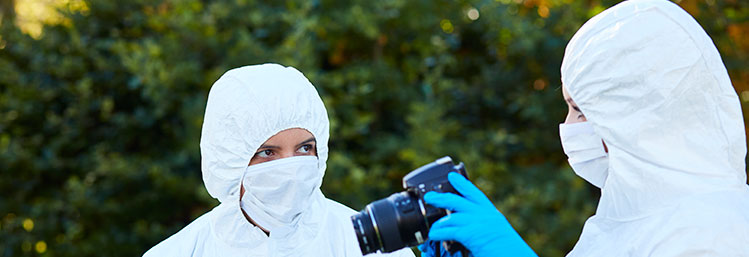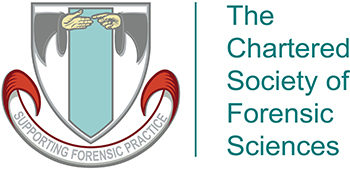
Forensic Science
BSc (Hons)
- Typical offer for 2025
- Duration
- UCAS code
- Start date
- Location
Suitable for applications.
Placement Year
You can spend a year in a laboratory environment as a paid employee of an approved organisation.
This experience allows you to apply theoretical knowledge to practical problems, learn about work practices, and improve your career prospects.
Teaching, learning and assessment
You will learn through a mixture of lectures, seminars, laboratory practicals, workshops, case studies and directed study. Directed study will include directed reading of selected textbooks, specified source literature and open learning materials, directed web-based materials, report writing and other assignments. There will also be an individual project/dissertation.
You will be assessed by written closed-book examinations using constructed (essays, short answers) and selected response (MCQ) questions and a variety of coursework assignments, including laboratory reports, oral presentations and dissertations.
There will also be involvement in laboratory, small-group workshops, case-based work and projects (individual and small group). You will be assessed by critical appraisal, case analysis and critique, case presentations, laboratory reports and dissertations.
At Stage 3, essays, the journal critique and essay-based examinations provide a format to critically evaluate the key themes of the degree. Practical portfolios and worksheets allow you to demonstrate your understanding of forensic laboratory techniques.
The research dissertation develops your ability to undertake independent research and plan this research effectively. Presentations, the witness statement and the mock court exercise will develop your professional oral and written presentation skills.

Study abroad
A study abroad year is a fantastic opportunity to broaden your horizons, build connections with people from different backgrounds and cultures, and strengthen your skills and experience to make you stand out in the job market.
We have opportunities for students to study, work or volunteer in more than 150 countries across the world and will support you every step of the way.
Study support
Research
Terms and conditions of study
The University has a set of terms and conditions for all students accepting an offer to study on a course here at Bradford. This is called The Student Contract. This document sets out the Terms and Conditions which apply when you accept an offer of a place on a programme of study at the University of Bradford.
View our Student Contract for further details.
Transparency statement
Information about this programme and its modules has been published in advance of the academic year to which it applies. Every effort has been made to ensure that the information is accurate at the time of publication, but changes may occur given the interval between publishing and commencement of teaching. Any change which impacts the terms and conditions of an applicant’s offer will be communicated to them.

